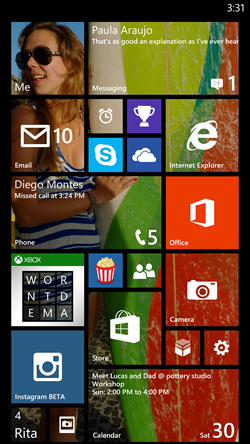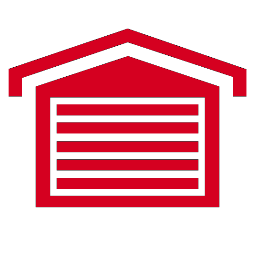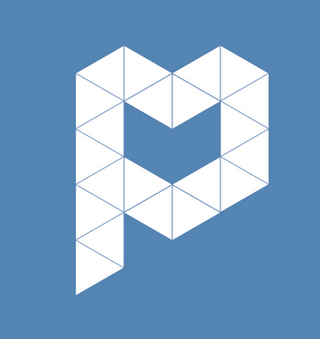
Near-field communication (NFC) is a set of communication protocols that enables communication between two electronic devices over a distance of 4 cm or less. NFC offers a low-speed connection through a simple setup that can be used to bootstrap more-capable wireless connections. Like other "proximity card" technologies, NFC is based on inductive coupling between two so-called antennas present on NFC-enabled devices—for example a smartphone and a printer—communicating in one or both directions, using a frequency of 13.56 MHz in the globally available unlicensed radio frequency ISM band using the ISO/IEC 18000-3 air interface standard at data rates ranging from 106 to 424 kbit/s.
Proximity marketing is the localized wireless distribution of advertising content associated with a particular place. Transmissions can be received by individuals in that location who wish to receive them and have the necessary equipment to do so.

Google Pay Send, previously known as Google Wallet, was a peer-to-peer payments service developed by Google before its merger into Google Pay. It allowed people to send and receive money from a mobile device or desktop computer.

Android is a mobile operating system based on a modified version of the Linux kernel and other open-source software, designed primarily for touchscreen mobile devices such as smartphones and tablets. Android is developed by a consortium of developers known as the Open Handset Alliance and commercially sponsored by Google. It was unveiled in November 2007, with the first commercial Android device, the HTC Dream, being launched in September 2008.

iOS is a mobile operating system created and developed by Apple Inc. exclusively for its hardware. It is the operating system that powers many of the company's mobile devices, including the iPhone; the term also includes the system software for iPads predating iPadOS—which was introduced in 2019—as well as on the iPod Touch devices—which were discontinued in mid-2022. It is the world's second-most widely installed mobile operating system, after Android. It is the basis for three other operating systems made by Apple: iPadOS, tvOS, and watchOS. It is proprietary software, although some parts of it are open source under the Apple Public Source License and other licenses.

Windows Phone (WP) is a discontinued family of mobile operating systems developed by Microsoft for smartphones as the replacement successor to Windows Mobile and Zune. Windows Phone featured a new user interface derived from the Metro design language. Unlike Windows Mobile, it was primarily aimed at the consumer market rather than the enterprise market.

WhatsApp is an internationally available freeware, cross-platform, centralized instant messaging (IM) and voice-over-IP (VoIP) service owned by American company Meta Platforms. It allows users to send text and voice messages, make voice and video calls, and share images, documents, user locations, and other content. WhatsApp's client application runs on mobile devices, and can be accessed from computers. The service requires a cellular mobile telephone number to sign up. In January 2018, WhatsApp released a standalone business app called WhatsApp Business which can communicate with the standard WhatsApp client.

Tiny Tower is a business simulation video game developed by NimbleBit, released on June 23, 2011 and November 16, 2011 for iOS and Android devices respectively. The game tasks players with managing a tower filled with virtual people, referred to as “bitizens”, with the goal of building new floors and gradually making the tower taller, which attracts bitizens to move in and work in any floor the player designates.

Google Play, also known as the Google Play Store and formerly the Android Market, is a digital distribution service operated and developed by Google. It serves as the official app store for certified devices running on the Android operating system and its derivatives, as well as ChromeOS, allowing users to browse and download applications developed with the Android software development kit (SDK) and published through Google. Google Play has also served as a digital media store, offering games, music, books, movies, and television programs. Content that has been purchased on Google Play Movies & TV and Google Play Books can be accessed on a web browser and through the Android and iOS apps.
AskforTask is a Toronto-based marketplace where people can outsource tasks like cleaning, handyman, and moving. Similar to Uber but for home services, the service is accessible on Android, iOS, and online.
Microsoft mobile services are a set of proprietary mobile services created specifically for mobile devices, they are typically offered through mobile applications and mobile browser for Windows Phone, | platforms, BREW, and Java. Microsoft's mobile services are typically connected with a Microsoft account and often come preinstalled on Microsoft's own mobile operating systems while they are offered via various means for other platforms. Microsoft started to develop for mobile computing platforms with the launch of Windows CE in 1996 and later added Microsoft's Pocket Office suite to their Handheld PC line of PDAs in April 2000. From December 2014 to June 2015, Microsoft made a number of corporate acquisitions, buying several of the top applications listed in Google Play and the App Store including Acompli, Sunrise Calendar, Datazen, Wunderlist, Echo Notification Lockscreen, and MileIQ.

Upptalk was a proprietary voice-over-IP service and software application that provided mobile phone numbers in the cloud and allows users to call or text any phone for free whether or not the device receiving the calls and texts has the Yuilop application. The service was discontinued in 2017 and even its domain was abandoned.

Signal is a cross-platform centralized encrypted instant messaging service developed by the non-profit Signal Foundation and its subsidiary, the Signal Messenger LLC. Users can send one-to-one and group messages, which can include files, voice notes, images and videos. It can also be used to make one-to-one and group voice and video calls. The Android version also optionally functions as an SMS app, but this functionality will be removed in 2023.

The Microsoft Garage is a Microsoft program that encourages employees to work on projects about which they are passionate, despite having no relation to their primary function within the company. Employees from all divisions of Microsoft are free to take part in Microsoft Garage activities and small-scale innovation projects. The Microsoft Garage is a global program with locations on the main campus in Redmond, Washington, and several others spread all over the world, and a website that launched in October 2014 to share experimental projects with customers.
Venmo is an American mobile payment service founded in 2009 and owned by PayPal since 2013. Venmo was aimed at friends and family who wish to split bills, e.g. for movies, dinner, rent, or event tickets etc. Account holders can transfer funds to others via a mobile phone app; both the sender and receiver must live in the United States. On Venmo, a little social network, users can observe how others who are sending money to one another interact with amusing emoticons. In 2021 the company handled $230 billion in transactions and generated $850 million in revenue.

Mypoolin is a mobile peer-to-peer and group payment application. The company's only goal is to make sure that whenever you are collecting or settling money before or after an event or activity, the process remains convenient and simple both on the web and mobile.

Tasker is an Android application originally developed by a developer known as "Pent", and later purchased by João Dias. It enables performing user-defined actions based on contexts in user-defined profiles, activated by click- or timer-based home screen widgets. It is expandable via plugins from the developer and third-party apps. The app is available from Google Play; a 7-day free trial version which does not allow restoring backups can be downloaded as an APK on the app's website.

Google Pay is a mobile payment service developed by Google to power in-app, online, and in-person contactless purchases on mobile devices, enabling users to make payments with Android phones, tablets, or watches. Users can authenticate via a PIN, passcode, or biometrics such as 3D face scanning or fingerprint recognition.

Cash App is a mobile payment service available in the United States and the United Kingdom that allows users to transfer money to one another using a mobile phone app. In September 2021, the service reported 70 million annual transacting users and US$1.8 billion in gross profit.
Google Wallet is a digital wallet platform developed by Google. It is available for the Android, Wear OS, and Fitbit OS operating systems, and was announced on May 11, 2022, at the 2022 Google I/O keynote. It began rolling out on Android smartphones on July 18, co-existing with the 2020 Google Pay app and replacing the 2018 one.













